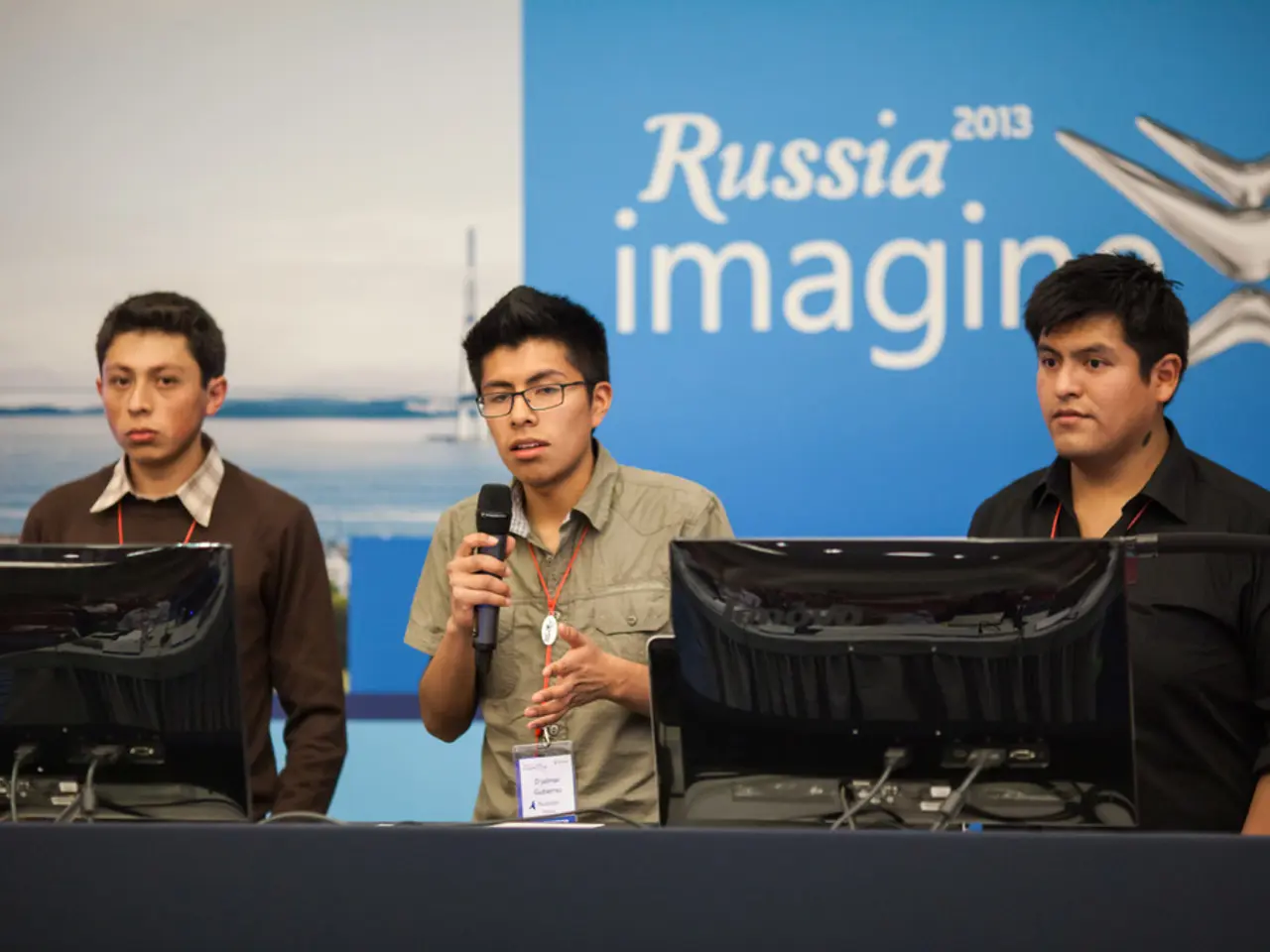GOP Official Criticizes Trump Administration's Resumption of Selling Graphics Processing Units to China
**US Lifts Restrictions on Nvidia H20 GPUs: Implications and Controversies**
The export regulations surrounding Nvidia's H20 GPUs and similar processors have witnessed a shift, following the Trump administration's decision to lift the ban on their sale to China. This decision, announced in July 2025, comes after a period of restricted sales due to national security concerns [1][2].
The move is expected to have a positive impact on Nvidia's business, with the company anticipating a significant increase in quarterly sales, potentially reaching up to $4.5 billion [1]. However, the supply of H20 GPUs is currently limited due to the voiding of customer orders and the cancellation of manufacturing capacity during the restrictions [3].
Republican John Moolenaar, the chair of the US House Select Committee on China, has voiced his opposition to this decision. In a letter to the Secretary of Commerce, he expressed concerns that the H20 GPUs could be used by Beijing to build supercomputers in violation of the Supercomputer end-use rule [2].
The H20 GPUs, capable of up to 44 teraFLOPS at single-precision, align with the figures cited in Moolenaar's letter [2]. This computing power is significant, as it meets the US definition of a 'supercomputer' [4].
The US Export Administration Regulations define a supercomputer as a computing system having a collective maximum theoretical compute capacity of 100 or more double-precision (64-bit) petaFLOPS or 200 or more single-precision (32-bit) petaFLOPS within a 41,600 ft3 or smaller envelope [4].
Executives from both Nvidia and AMD have argued that if the US makes it difficult to obtain US semiconductors, they'll seek out alternatives [5]. AMD has been cleared to join Nvidia and resume selling some underpowered AI chips to China [6].
The concerns raised by Moolenaar echo recent findings from Canadian research outlet TechInsights, which suggested that SMIC, the Middle Kingdom's top chip manufacturer, remains generations behind the rest of the world [7].
The use of H20 GPUs in China has already been reported. Tencent, for instance, is said to have used H20s to train its Hunyuan-Large model, a project requiring over 200 petaFLOPS of computing power, which meets the US definition of a 'supercomputer' [3].
This controversy underscores the complexities involved in regulating the export of advanced technology, particularly in the context of the US-China tech rivalry. The debate continues as lawmakers grapple with striking a balance between promoting business growth and safeguarding national security.
- The shift in export regulations allows Nvidia to sell their H20 GPUs to China, a decision that raises concerns about data-and-cloud-computing and AI technology's potential use in policy-and-legislation and politics.
- In the general news, Republican John Moolenaar, the chair of the US House Select Committee on China, has expressed concerns that the H20 GPUs could be used by Beijing to build supercomputers, violating the Supercomputer end-use rule.
- The H20 GPUs' computing power aligns with the US definition of a 'supercomputer', as it meets the requirements set by the US Export Administration Regulations.
- Executives from Nvidia, AMD, and other tech companies argue that if the US makes it challenging to obtain US semiconductors, they'll seek out alternatives, potentially impacting the US's technology regulation policies.




